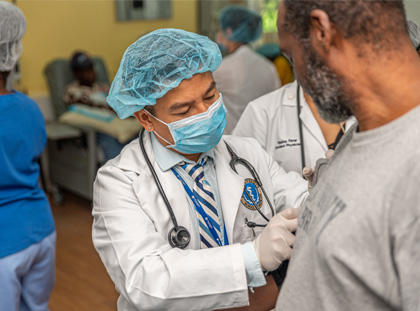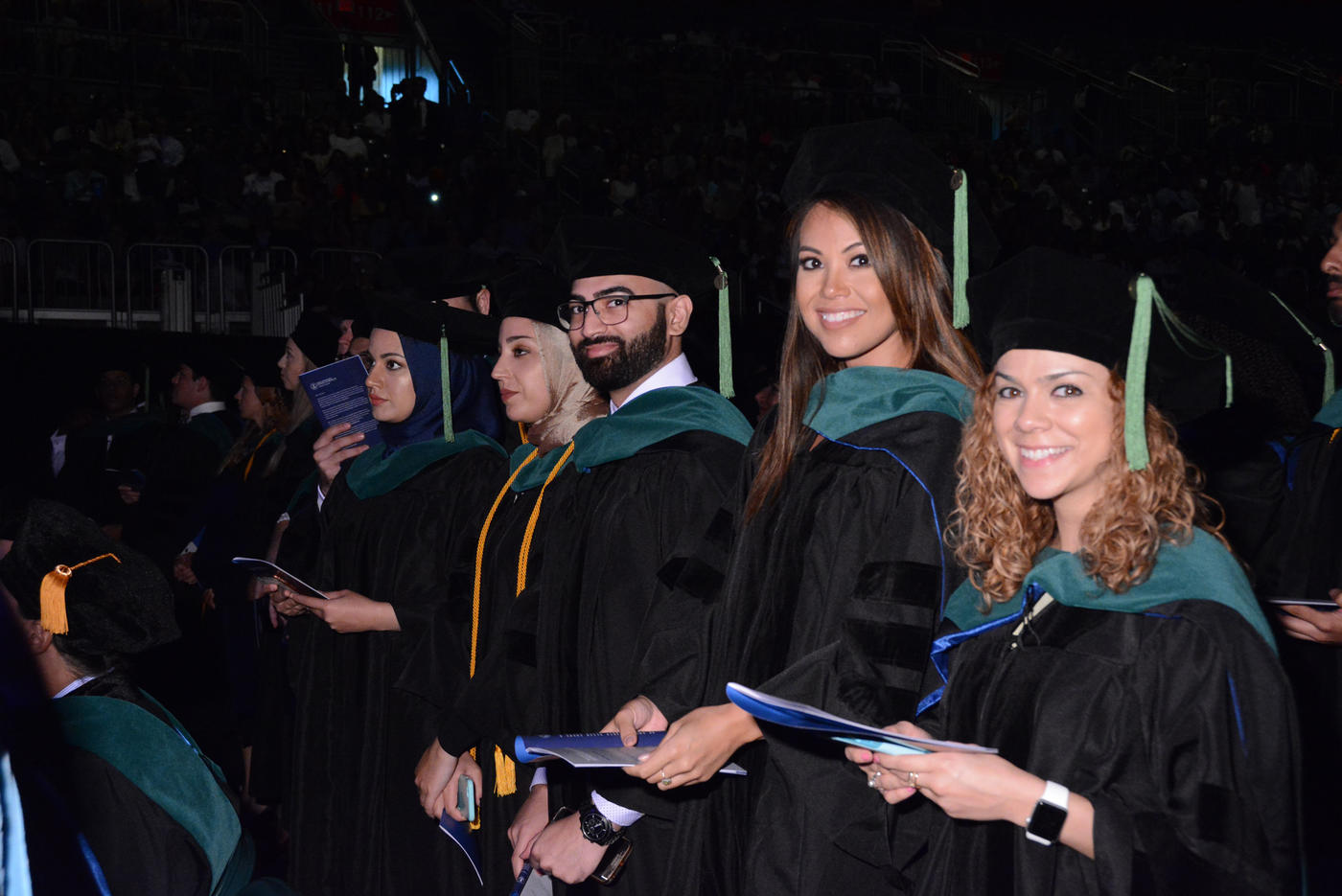The Medical College Admission Test® (MCAT®) is a milestone exam that you must complete to be accepted into medical school. The MCAT is a tool that committees at accredited medical schools—such as Ross University School of Medicine (RUSM)—use to help determine your eligibility for admission to their school. Doing well on the exam can be your ticket into the medical school program of your choice.
The MCAT takes approximately seven and a half hours to complete and is made up of 230 questions. On average, most students need around 15 hours per week for at least four months for MCAT prep. The exam is no easy feat, so it’s no surprise if you have questions about where to start.
How to Study for the MCAT
Preparing for the MCAT should begin several months before you take the exam. If you want to know how to prepare for the MCAT, you may want to follow some defined steps to ensure that you have the knowledge, calm, and confidence beforehand. There is no one-size-fits-all approach to MCAT prep, but there are some guiding principles that may apply to nearly everyone.
Get Familiar with the MCAT’s Content
It is pointless to study for the MCAT without fully understanding what the test covers and how it covers it. The MCAT consists of four sections that highlight important aspects of the medical sciences. You will be required to know the basic information for each section, as well as be a master of the critical skills expected of you as a future medical professional.
The four sections of the MCAT are:
- Critical Analysis and Reasoning Skills
- Biological and Biochemical Foundations of Living Systems
- Chemical and Physical Foundations of Biological Systems
- Psychological, Social, and Biological Foundations of Behavior
Many students researching how to start studying for the MCAT don’t realize that MCAT test prep really starts with undergraduate coursework. Biology, organic chemistry, and other science courses covered in undergraduate education create an essential MCAT foundation. If you are still doing your undergraduate work, selecting science courses with the MCAT in mind can help your overall study efforts.
Focus on Accuracy
The MCAT is a timed test: you will have 375 minutes to answer 230 questions, which works out to just over a minute and a half per question. Both timing and accuracy are important, and balancing the two is essential during the exam. You will eventually need to be able to accurately and quickly answer each question, but when preparing for the MCAT, you should initially focus on accuracy. It is easier to first build accuracy and then focus on shaving time off each question.
Work on Your Weakest Subjects
Your strongest subjects are probably the ones you like best. This is either because you are intuitively good at them or because liking them makes them easier to study. The contrary is also often true: you may do worse on subjects you like least. While not necessarily fun, the more you dislike a topic, the more you should probably study it.
Study Early
The earlier you start studying for the MCAT and familiarizing yourself with the exam, the better off you may be. To ensure that you are ready and have time to maximize your MCAT study plan, you should begin preparing for the MCAT some three to six months before the test date. Some people may need less time, while others may want to begin studying even earlier. Everyone who takes the MCAT studies extensively, but if you begin studying as early as possible in your undergraduate education, you may gain an advantage over students who start studying later.
Studying on your own may not be the best way to prepare for the MCAT. In addition to individual study, you should consider a variety of preparation styles. Some ways to prepare for the MCAT include:
- MCAT study guides
- MCAT preparation courses
- Full-length practice exams
- Test-day timing simulations
Some students prefer to study in groups. You may want to set up a study group with other students who are also preparing for the MCAT. If you are looking for additional resources to help you prepare for the exam, you can visit the American Association of Medical Colleges (AAMC) or another test prep site for access to practice tests and exam preparation guidance.
Create an MCAT Prep Schedule
As the test date nears, you may want to ramp up your MCAT study plan, and treat preparation like a full-time job. Your day may look something like this:
- 0600-0800: Wake up, perform morning activities, shower
- 0800-1100: Study for the MCAT (practice questions, test reviews, or chapter readings)
- 1100-1300: Take a break, eat lunch
- 1300-1600: Study for the MCAT
- 1600-1700: Take a break
- 1700-1900: Study for the MCAT
- 1900-2300: Take a break, eat dinner, do other life activities
Walker Wilkins Class of ‘24 at Ross University School of Medicine, established a three-month study plan at the start of his MCAT test prep. It started with being at his desk for studying by 8 a.m. everyday, followed by a two-hour noon-time break for the health club and lunch. In the evenings, he had a full-time job. When he was off from his evening work, he invested six more hours into practice tests through online resources.
Wilkins shares, “The MCAT is a real mind game, and you have to be determined to take it on as that kind of challenge. I was lucky in that I had a quiet place to study at home because you have to try to eliminate all distractions. I also don't recommend studying longer than three months for the test because I found that the information I studied first—psychology and sociology—I had more trouble remembering."
As you can see, the best way to study for the MCAT will vary for everyone. Regardless, having a structured plan to attack the exam is important.
Simulate Real Test Conditions
During the MCAT, you can only eat and drink on breaks and you can not listen to music or have any electronics. As you near test day, study in conditions that simulate the test atmosphere—alone, in total silence, without any kind of distraction. It is a good way to study well and it can help prepare you for the high-pressure MCAT environment.
Find Balance
While MCAT prep is key, it is also important to be balanced in your study approach. You can’t abandon your personal well-being while dedicating yourself to an MCAT study schedule. Keep in mind, MCAT prep dedication is much easier if you have the support of family, friends, and other students preparing for the exam. Group study can be quite productive, and may also lessen study stress.
In the end, exhaustion and burnout will not help you do well on the exam. So study hard, but find balance. Continue your commitment to classes as well as your physical and mental health.
No matter which journey you follow for your exam preparation, be resilient and don’t give up. Walker Wilkins passed with a 496 test score the first time he took the test. But it’s not unusual to take the MCAT several times. According to the AAMC, you can take the MCAT up to three times in any given year and up to seven times over a lifetime.
You can do this! There are plenty of MCAT prep strategies and tactics you can use to your advantage to prepare for test day. Now that you are ready to start studying for the MCAT, learn more about Ross Med's MD Program and see if it's the right option for you.
Related Resources:



